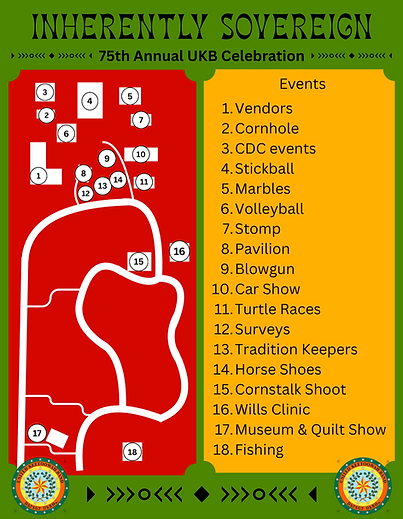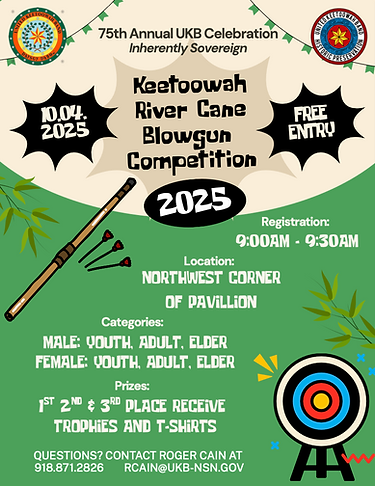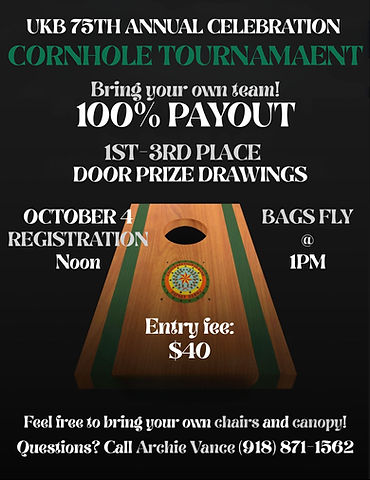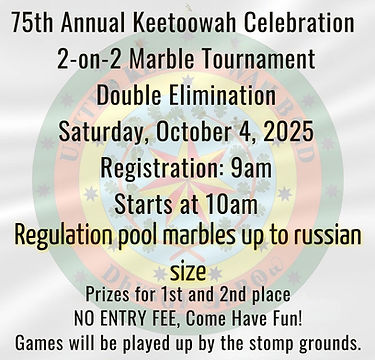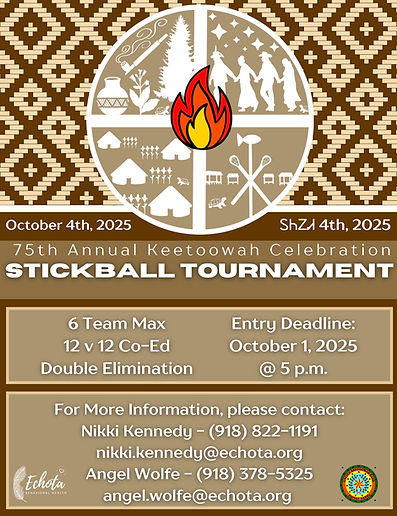Traditional. Enduring. HISTORY.
"Ani-gi-du-wa-gi" is our original name.
Our stories tell us that our name "Anigiduwagi" was given to us by the Creator after seven of the wisest Cherokee men fasted for seven days and nights atop a high peak. Today it is written as "Keetoowah" or "Kituwah" and pronounced as: "Kih-too-wah."
We are also known as the Western Cherokee, or Old Settlers, as many of us were already moving west to avoid U.S. encroachment before the Trail of Tears officially began.
Today we number more than 14,000 tribal members strong. Our members reside in several states throughout the U.S., though the majority are located in Oklahoma. To be eligible for tribal membership, members must prove at least a 1/4 Cherokee blood quantum.


"O-we-nv-sv" is how we say home.
Our original homelands are in the southeastern part of the U.S. and include the present-day states of Georgia, Alabama, Tennessee, North Carolina and South Carolina. Our mother town is known as Kituwah Mound, where the Creator gave the laws and first fire to our people. It is located near present-day Bryson City, North Carolina.
The Keetoowahs were the first Cherokees to move west, first voluntarily to avoid encroachment from colonizers, and then involuntarily to Indian Territory after the Indian Removal Act. Today we presently reside in the Cherokee capital of Tahlequah, Oklahoma.
Giduwa Language
Our language in written form is represented by the Cherokee Syllabary (pictured) and was invented by Cherokee Sequoyah Guess in 1809. After several revisions, his work was completed in 1821 and shared widely with his fellow Cherokees, ushering in an era of literacy that would revolutionize our society.
Our spoken language today has become more difficult to preserve, often due to assimilation and boarding schools. The language can also be complex and Keetoowahs, like the other two Cherokee tribes, have their own distinct dialect of the language. This dialect can also vary from community to community.
We have fewer fluent speakers with each passing year, though efforts are being made to pass our language on to the next generation.


Land in Trust
Though we have called Tahlequah home since removal to Indian Territory, we were not granted land in trust until the U.S. Court of Appeals for the Tenth Circuit did so on September 5, 2019.
We now have 76-acres of trust land in Tahlequah that is home to our community services buildings, a childcare center, a museum, a wellness center, an elder center and our stomp grounds.
Land in trust assures our tribal members that we will have unrestricted lands to develop as we wish for the many generations of Keetoowahs still to come.
WELCOME TO THE 75TH ANNUAL KEETOOWAH CELEBRATION
Please click the link above to view and download the 2025 Vendor Application.
Deadline: October 3, 2025 5 P.M.
Please turn in completed forms to Sabrina Washington.
18300 W Keetoowah Circle
Tahlequah, OK 74464

